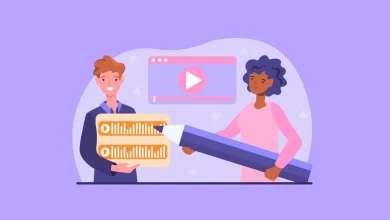Low vision is a significant impairment of sight that cannot be adequately corrected with standard medical, surgical, or optical interventions. This condition can result from various causes, including genetic defects, injury, aging, or complications from diseases such as diabetes or macular degeneration. Individuals with low vision experience challenges such as loss of visual field, reduced light sensitivity, distortion, loss of color vision, and contrast sensitivity. low vision specialists play a crucial role in helping these individuals maximize their remaining vision and improve their quality of life.
What is a Low Vision Specialist?
Low vision specialists are licensed healthcare professionals, primarily optometrists, with specialized training in managing patients with visual impairments. Some ophthalmologists also receive additional training in low vision care. These specialists do not cure the underlying causes of low vision but help patients utilize their remaining vision to its fullest potential. They offer comprehensive assessments and personalized rehabilitation plans to enhance visual functioning and daily living.
The Role of a Low Vision Specialist
Low vision specialists conduct thorough evaluations that go beyond regular eye examinations. These assessments focus on understanding the extent of vision loss and its impact on the patient’s daily life. Key aspects of their role include:
• Comprehensive Vision Assessments: Evaluating visual acuity, visual field, contrast sensitivity, and the ability to see in different lighting conditions.
• Personalized Rehabilitation Plans: Developing strategies and recommending devices tailored to the patient’s specific needs and goals.
Types of Low Vision Aids
Low vision specialists introduce and train patients on various aids designed to enhance visual capabilities. These aids include:
• Optical Devices: Magnifying glasses, telescopic lenses, and specialized eyeglasses that enlarge images on the retina.
• Electronic Devices: Closed-circuit television systems (CCTVs), video magnifiers, and screen-reading software that provide enhanced viewing options.
• Non-Optical Devices: Items such as large-print books, high-contrast clocks, and tactile markers that aid in daily tasks.
• Adaptive Technologies: Smartphones, tablets, and wearable devices equipped with accessibility features that assist with navigation and reading.
Low Vision Specialist Services
Low vision specialists offer a range of services to help patients adapt to their vision loss and maintain independence. These services include:
• Detailed Low Vision Examinations: Comprehensive assessments that take about two hours, focusing on the patient’s visual needs and goals.
• Introduction and Training on Low Vision Aids: Demonstrating and training patients on the use of various low vision devices.
• Home and Work Environment Adaptations: Recommending changes to the patient’s environment to improve safety and functionality. This may involve home visits to set up adaptive equipment, analyze lighting, and mark appliances.
Insurance Coverage for Low Vision Services
Understanding insurance coverage for low vision services is essential for patients seeking care. Key points include:
• Overview of Insurance Coverage: Many insurance plans, including Medicare, cover low vision examinations and some adaptive devices for qualifying individuals.
• Specifics on Medicare and Other Insurance Plans: Details on what is typically covered and how patients can ensure they receive the necessary benefits.
• Advice for Patients on Verifying Coverage: Tips on how to check with insurance providers about the extent of coverage for low vision care.
What to Expect During a Visit
A visit to a low vision specialist involves several steps to ensure a thorough understanding of the patient’s visual needs. Patients can expect:
• Typical Procedures and Assessments: A detailed review of medical and vision history, testing of visual functions, and discussion of lifestyle needs.
• Timeframe and Structure of an Appointment: A typical appointment lasts about two hours and includes various tests and evaluations.
• Follow-up Visits and Additional Support: Scheduling follow-up visits to monitor progress and adjust rehabilitation plans as needed.
Conclusion
Low vision specialists provide essential services that significantly enhance the quality of life for individuals with visual impairments. By utilizing specialized assessments, devices, and personalized care plans, these professionals help patients achieve greater independence and functionality. For anyone experiencing low vision, seeking the expertise of a low vision specialist can lead to a more fulfilling and autonomous life.




